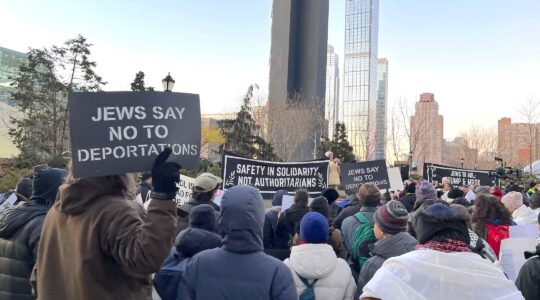Tel Aviv — You could forgive Israelis and Palestinians for having a case of whiplash.
Over the weekend, millions of dollars of Qatari money were transferred to Gaza, with Israeli authorization, to pay Hamas government employee salaries. Countering criticism from those on the right in his coalition, Prime Minister Benjamin Netanyahu said the move was intended to prevent deteriorating humanitarian conditions in Gaza and avoid an unnecessary war.
Just hours later, after an Israeli covert intelligence mission inside of the Gaza Strip went awry and left an Israeli commander and seven Hamas combatants dead, the sides have engaged in the worst round of violence since the 2014 war and seem poised on the outbreak of a new war.
Palestinian militants fired hundreds of rockets into Israel, killing a resident of the southern Israel city of Ashkelon and leaving dozens injured. A Russian-made Kornet rocket fired from Gaza hit at an empty Israeli military bus, injuring an IDF soldier nearby; if it had been full of soldiers, the casualty count would have been likely been a casus belli for a new war.
The prime minister cut short a diplomatic visit to France to return to Israel. The warlike situation prompted the cancellation of school in southern Israel and forced Israeli residents living around Gaza into bomb shelters.
It also left many wondering about the logic of Israel authorizing the covert operation inside enemy territory while the prime minister was seeking to firm up efforts to reach informal cease-fire with Hamas and end more than a half year of violence and instability along the Gaza border.
Details of the operation and its purpose remained secret. But critics were quick to speak out.
“This government doesn’t know how to prepare, start or end a Gaza operation, and is pursuing a policy of confusion and desperation,” said former Israeli prime minister and defense minister Ehud Barak in an interview with Israel television. “It’s a right-wing government with two left hands. Unfortunately, we are all paying the price.”
Some have cautioned that the swift deterioration from the push for a truce to the brink of a wider conflict should serve as a warning for future efforts to reach a cease-fire between Israel and Hamas.
“The dissonance between deal-making on Qatari financing and the seemingly botched operation demonstrates the vulnerabilities of understandings between enemies. It is hard to fight with one hand and cooperate with another,” said Ofer Zalzberg, an analyst at the International Crisis Group. “Even if Israel and Hamas manage to avoid war and continue [negotiating] based on the understandings they have reached, these will be rickety and subject to collapse.”
Efforts to reach a long-term truce have continued intermittently for the last seven months — when a series of mass demonstrations at the Gaza-Israel border triggered an escalation of violence that had included incendiary balloons, rocket fire and Israeli reprisals. The push toward a long-term “arrangement” between Israel and Hamas has involved Egypt, the United Nations and Qatar. There has been talk about a commitment to a substantive truce in return for Israel allowing for funds and infrastructure to ease the deteriorating conditions in Gaza.
On Tuesday, the U.N. special coordinator for the Middle East peace process, Nikolai Mladenov, said efforts were continuing to rein in the violence, and warned that the situation is explosive.
“The escalation in the past 24hrs is extremely dangerous and reckless,” Mladenov wrote on Twitter. “Rockets must stop, restraint must be shown by all! No effort must be spared to reverse the spiral of violence.”
As Netanyahu huddled with cabinet ministers at the Israeli military headquarters in Tel Aviv on Tuesday, rockets continued to fall in southern Israel, and Gazan militant leaders threatened to widen their attacks to the southern Israeli cities of Beersheva and Ashdod. Both sides know that there is plenty of potential to escalate the conflict, said Israel Radio’s military affairs commentator.
As Israel’s government deliberated, Netanyahu came under attack from Yair Lapid, the leader of the centrist Yesh Atid party. “This is the time to use force. The IDF’s toolbox is large and hasn’t been exhausted,” he said in a statement. “There can be no arrangement without deterrence. Hamas must not be allowed to run” our lives.
Similar sentiments are ratcheting up political pressure on the government to order a more severe response. Though Israel’s air force has sought to avoid civilian casualties in Gaza, it has hit the broadcast studios of Hamas’ news channel and destroyed high-rise buildings linked to Hamas in Gaza.
But some in the Israeli public didn’t consider the response stiff enough.
“I don’t think that Israel can contain this. This has become a political problem for Netanyahu, [Defense Minister Avigdor] Lieberman and the IDF,” said Amos Harel, the diplomatic correspondent for Haaretz in a podcast for the Israel advocacy group, The Israel Project. “The general feeling is that Israel’s deterrence against Hamas is diminishing, and Hamas allows itself to act so aggressively because it feels immune to an Israeli response.”
But there are no good answers.
The flare-up in violence has run counter to the long-term interests of both Israel and Hamas, analysts said. Israel’s security establishment considers Iran’s growing power in Syria as its primary strategic concern, and getting bogged down in another war in Gaza would likely distract from that goal. At the same time, with Israeli parliamentary elections scheduled for 2019, Netanyahu doesn’t want to risk a war that’s perceived as a failure.
“The Israeli calculus is straightforward: there is no desire for another round of fighting, and little expectation that the results would be different. The costs would probably be higher,” said Gerald Steinberg, a political science professor at Bar Ilan University.
He noted that Israel has few options. “It can continue the pinpoint operations, hitting targets from the air. If Israel wanted to uproot the capability of Hamas to fire rockets, it would require a massive operation on the scale of 2014, and many more casualties. There doesn’t seem to be a midpoint, and that seems like a real strategic dilemma.”
On the other hand, Hamas has little interest in a return to the war of 2014. Its strategic goal is to position itself to challenge Fatah for power in the West Bank after the ailing Palestinian President Mahmoud Abbas steps aside. Reaching an informal truce agreement with Israel would boost Hamas’ image regionally.
But even if there was a return to quiet in southern Israel and mediation talks take hold, some analysts caution that it might be part of the latest loop in the cycle of calm and escalation along the Gaza border.
A true-long term truce would have to include the involvement of the Palestinian Authority in the agreement. It would also require political concessions that neither Netanyahu or the Hamas leadership in Gaza are currently willing to make, said Nimrod Goren, director of Mitvim, an Israeli institute for regional foreign policy. Barring that, any cease-fire arrangement is likely to be short lived.
“Even if there is an arrangement, the question is how sustainable is it?” he said. “[A truce] needs to involve a diplomatic deal with PA involvement, and needs to involve more international diplomatic actors.”
The New York Jewish Week brings you the stories behind the headlines, keeping you connected to Jewish life in New York. Help sustain the reporting you trust by donating today.




